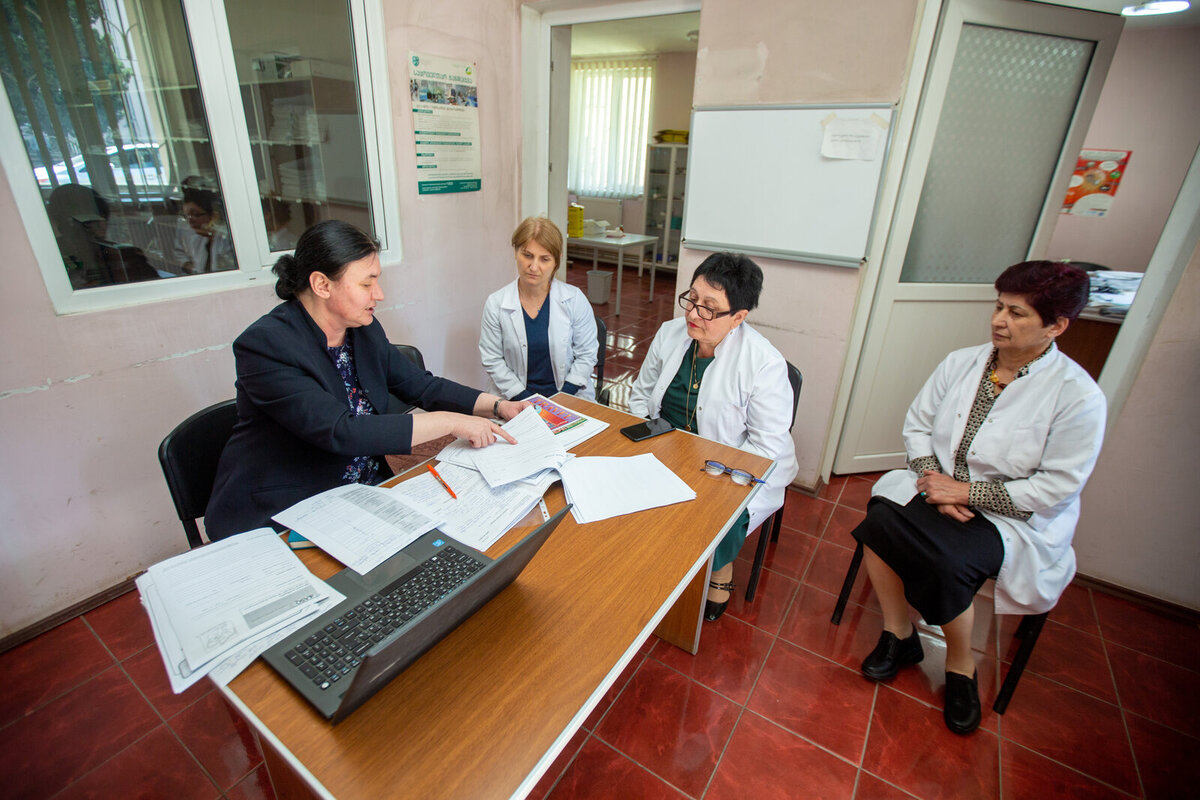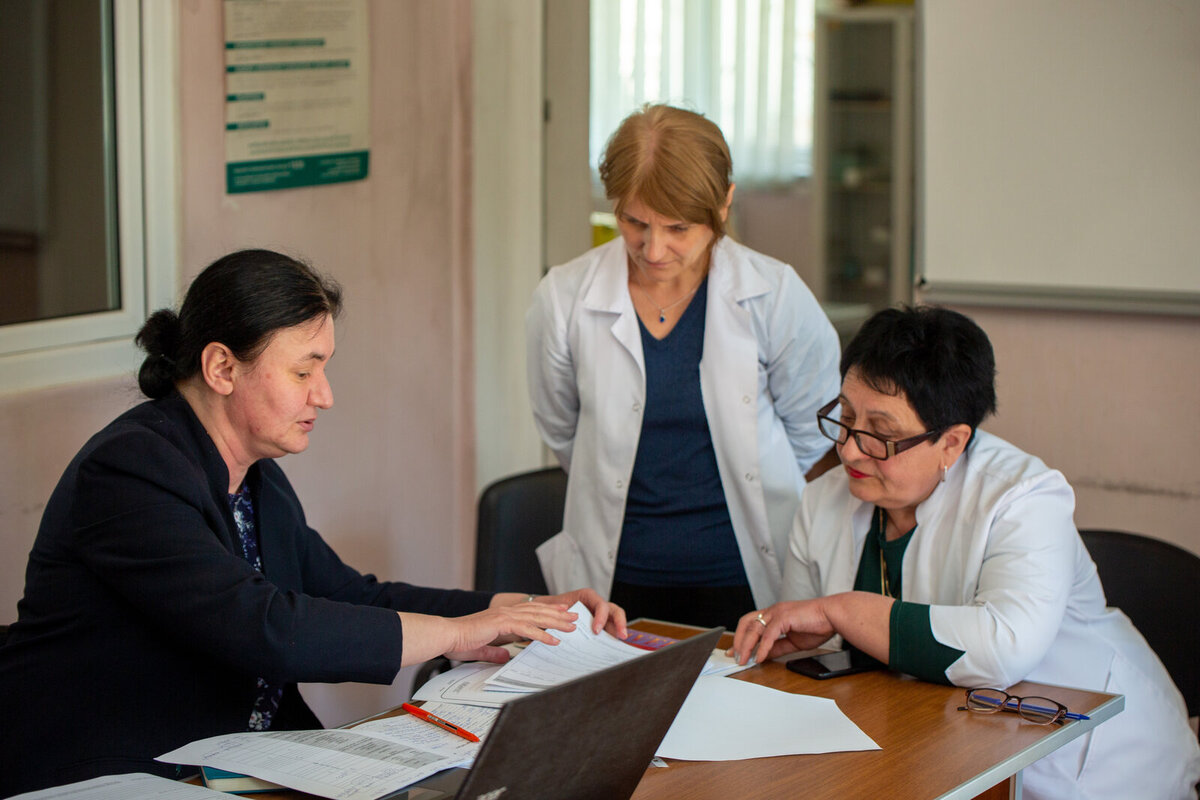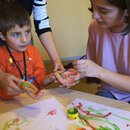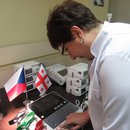Supporting child and maternal health at primary healthcare (PHC) became one of the main priorities of Caritas Czech Republic’s work, especially during COVID-19. After fruitfully cooperating with UNICEF within two previous projects, we started a new initiative aiming at accessing quality maternal and child health (MCH) services at the rural PHC level through the introduction of remote healthcare services and the establishment of Primary Healthcare Quality Assurance and Quality Improvement Hub. The project financially supported by UNICEF, USAID and EU started in July 2022 and involves the doctors of 50 ambulatories across the whole country.
New Initiative Pays Special Attention to the Introduction of Remote Services
Caritas Czech Republic and UNICEF have been partnering since 2020 to ensure the continuity and quality of maternal and child health services during the COVID-19 pandemic. Since then, we have implemented two joint initiatives that importantly supported rural ambulatories in improving the quality of medical services across the whole Georgia. Considering the valuable results achieved together, now we are starting a new project with a special accent on the introduction of 0-6 child health and development module, remote pediatric services and the establishment of a Quality Assurance and Quality Improvement Hub.
In 2021, Caritas Czech Republic presented UNICEF-supported “0-6-year-old child health growth and development monitoring electronic module” to the Ministry of Health of Georgia. The system was developed and further improved in line with the State protocol “Basic principles of monitoring the health and development of children aged 0-6 years.” In the framework of a new project, the module will be further enhanced and installed in all selected PHC clinics and rural family doctors will be trained in its use.
At the same time, the platform for the telemedicine network will be established and PHC teams from the selected 50 PHC clinics will be connected through the network. The latter will enable distance consultations between a patient and doctor and will benefit both health and convenience by contributing to the management of COVID-19 and common child illnesses. The software for online registration, planning and booking the remote visit, decision-making, live videoconferencing, store-and-forward video-conferencing, collection and storage of health data, notifications, reminders, and alerts will be launched in the selected ambulatories.
Noteworthy, PHC quality assurance/quality improvement and telemedicine oversight hub will be established under the auspices of the Georgia Family Medicine Association. The members of the association will be trained in monitoring the quality of PHC services and analyzing the data received from target 50 PHC facilities.
Rusudan Chkubianishvili, Caritas Czech Republic’s project manager says that our organization is proud to implement this important project for the country as it will set the ground for primary healthcare (including remote pediatric services) quality assurance and quality improvement system establishment to be fulfilled by the professional association of family medicine:
“Health quality monitoring is a natural function of professional associations in most developed countries. Besides, 50 PHC clinics will be equipped with 0-6 child health and monitoring electronic systems, which will ensure standardization of the delivery of PHC/MCH services, accurate data entry into the electronic medical records system.”
The Results of the Work Carried out in Close Partnership with UNICEF
After the COVID-19 outbreak in 2020, UNICEF Georgia and Caritas Czech Republic implemented the project aiming at ensuring the continuity of maternal and child health services during the pandemic. Even though the project significantly improved the knowledge of primary healthcare (PHC) specialists in the management of children and mothers’ health, some gaps still needed to be addressed.
Withing the joint first project, Caritas Czech Republic and UNICEF Georgia conducted online trainings to rural healthcare providers from all 10 regions of Georgia. In parallel, we worked on the design of care standards to be later delivered via telehealth visits, thanks to which mothers and young children will be provided with remote support and consultation by the trained rural healthcare providers. The project also ensured the development and integration of child health and development e-module into a real-time electronic Management Information System (E-MIS) intended as a mainstream tool for strengthening the PHC in Georgia.
To ensure the continuity and quality of maternal and child health services not only at primary but at secondary level, our cooperation with UNICEF continued in 2022, too. Within the initiative, all 1284 rural primary healthcare providers across the country were engaged in the project activities. Specifically, each rural clinic has an assigned trained practice facilitator, who works with the family doctors of approximately 30-35 ambulatories to improve their performance in the prevention and effective management of various childhood illnesses at the PHC, including COVID-19.
At the beginning of the project, primary healthcare mentors trained 32 practice facilitators who later carried out online supervision sessions and on-site visits to rural ambulatories across the whole country. Since the start of the field supervision process in February 2022, each facilitator has carried out at least one face-to-face supportive supervision visit to each ambulatory. Each supportive supervision session was dedicated to the specific clinical topic agreed upon between the mentors and facilitators.
Another very important part of the project was the update of pediatric COVID-19 management protocols, which has already been done and enforced by the Ministerial order in February 2022.
Subsequently, the face-to-face training course on the use of updated protocols were held in Tbilisi (2 training sessions), Rustavi, Marneuli and Telavi. Overall, 100 doctors of pediatric hospitals took part in a two-day training and were awarded the points of Continuous Medical Education. The course was accredited by the Ministry of Internally Displaced Persons from the Occupied Territories, Labor, Health and Social Affairs (MoILHSA).
Did you enjoy reading this article? Read more:









